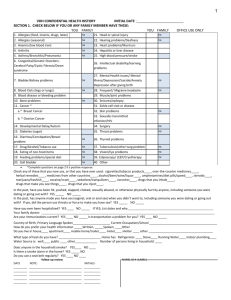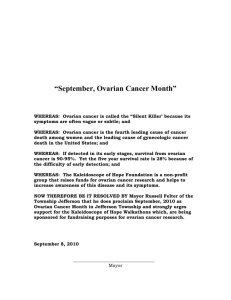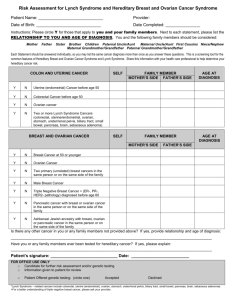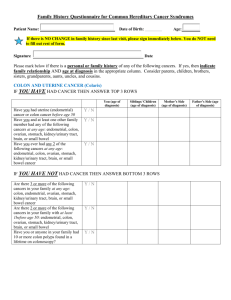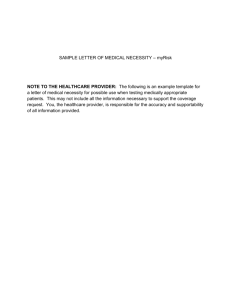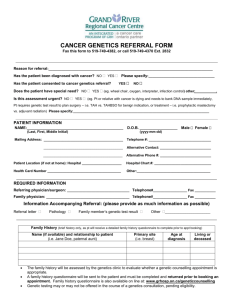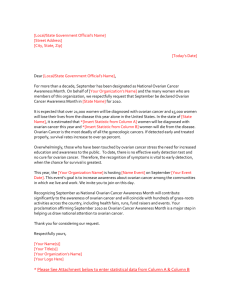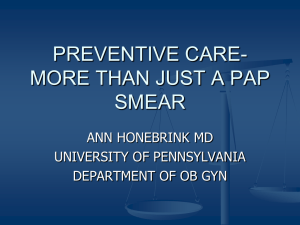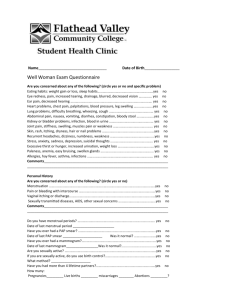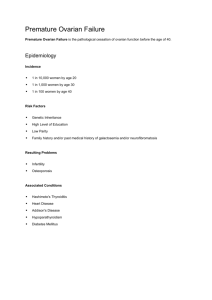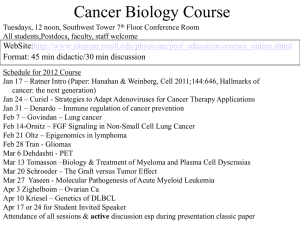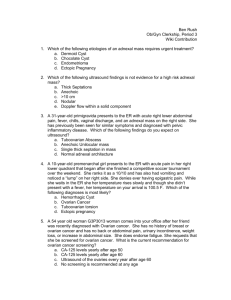Women\`s cancer and Afternoon Teal
advertisement
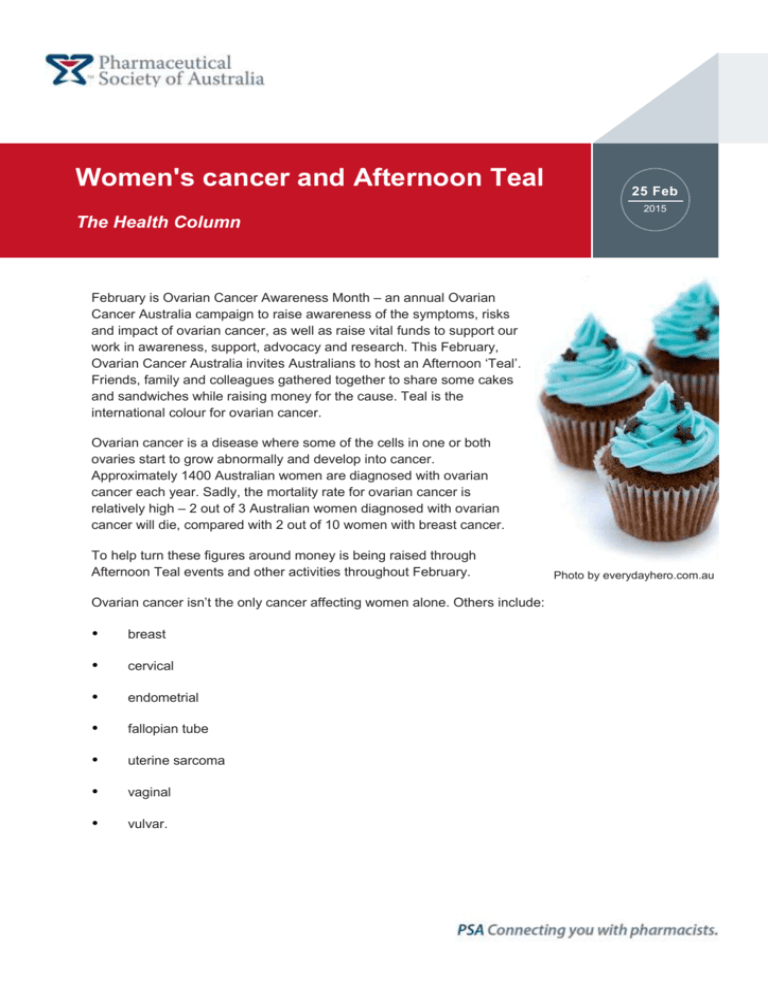
Women's cancer and Afternoon Teal 25 Feb 2015 The Health Column February is Ovarian Cancer Awareness Month – an annual Ovarian Cancer Australia campaign to raise awareness of the symptoms, risks and impact of ovarian cancer, as well as raise vital funds to support our work in awareness, support, advocacy and research. This February, Ovarian Cancer Australia invites Australians to host an Afternoon ‘Teal’. Friends, family and colleagues gathered together to share some cakes and sandwiches while raising money for the cause. Teal is the international colour for ovarian cancer. Ovarian cancer is a disease where some of the cells in one or both ovaries start to grow abnormally and develop into cancer. Approximately 1400 Australian women are diagnosed with ovarian cancer each year. Sadly, the mortality rate for ovarian cancer is relatively high – 2 out of 3 Australian women diagnosed with ovarian cancer will die, compared with 2 out of 10 women with breast cancer. To help turn these figures around money is being raised through Afternoon Teal events and other activities throughout February. Ovarian cancer isn’t the only cancer affecting women alone. Others include: breast cervical endometrial fallopian tube uterine sarcoma vaginal vulvar. Photo by everydayhero.com.au Early detection of these cancers is critical for a good prognosis. Keeping up-to-date with screening and paying attention to your body are the best ways to ensure early detection. Things to watch out for include: breast changes such as skin dimpling, nipple discharge and lumps bloating that doesn’t go away after one or two weeks bleeding between periods general skin changes pain that doesn’t go away. Australia has national screening programs for breast and cervical cancers. Women aged 18–69 should have a pap smear every two years. Women aged 50–69 should have a mammogram every two years. Always remember to book in your bi-annual pap smears and mammograms, and set reminders in your phone or write them on your calendar. Prevention also goes a long way to avoiding women’s cancers. The following are simple ways to reduce your cancer risk: Maintain a healthy weight. Engage in physical activity for at least 30 mins each day. Eat more fruit, vegetables and whole grains. Reduce your fat, sugar and salt intake. Limit red meat in your diet. Cut down on alcohol. Breastfeeding is best, if you can. Quit smoking. Vaccinate against cancer-causing infections like human papillomavirus (HPV). Your local pharmacy can help too. One of the key aspects to managing cancer is medicine management. Pharmacists are medicines experts and can assist you with understanding how your medicines work and any possible side effects. In addition, you can get more information on women’s cancers from pharmacies around Australia providing the Pharmaceutical Society of Australia’s Self Care health information. Self Care Fact Cards available from these pharmacies include topics such as Breast awareness and pap smear, as well as lifestyle topics such as Staying a non smoker and Weight and health. For the nearest Self Care pharmacy location phone the Pharmaceutical Society of Australia on 1300 369 772, or go to www.psa.org.au ‘Supporting practice’ then ‘Self Care’, and then ‘Find a Self Care pharmacy’.
